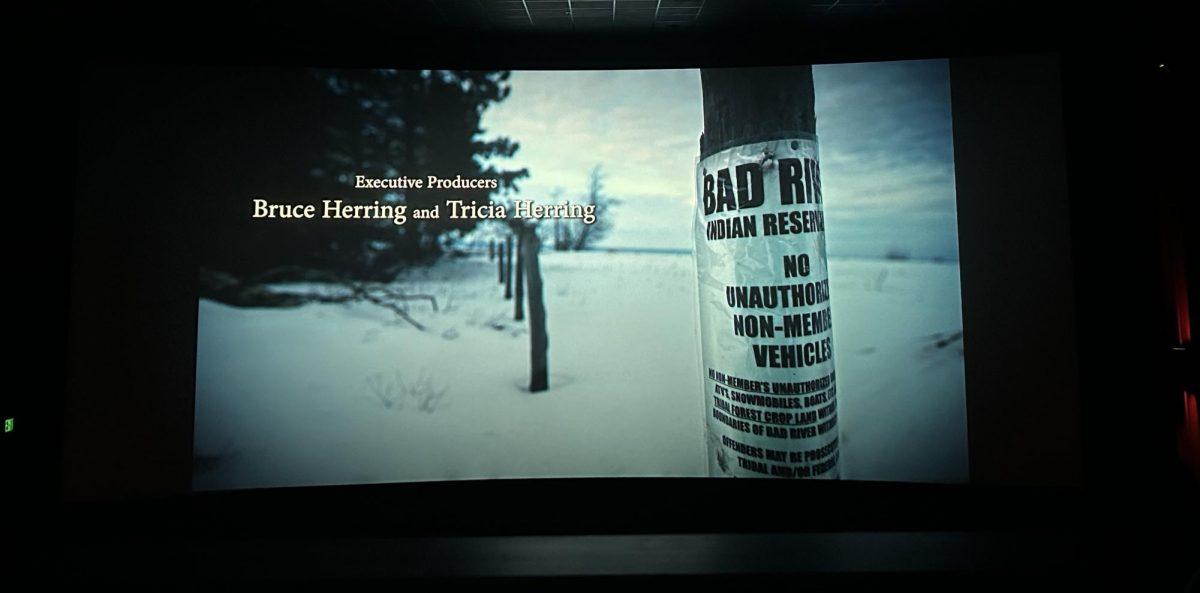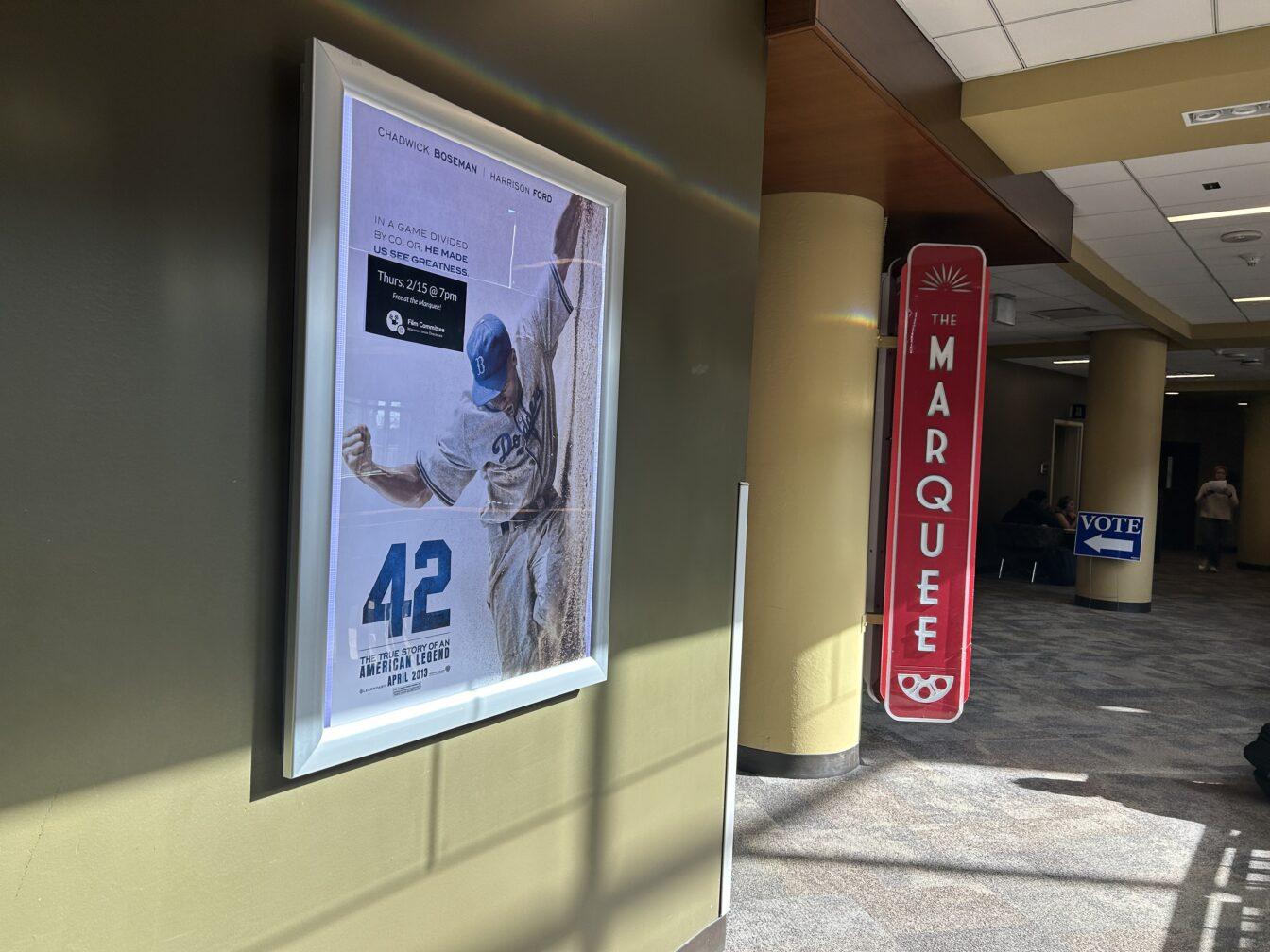Adam (Joseph Gordon-Levitt, “Inception”) seemingly has it all – a hot girlfriend, a solid job, a loyal friend and a supportive mom – until he goes to his doctor to get what he thinks is just irritating back pain checked out.
It turns out he has neurofibroma sarcoma schwannoma – a rare form of spinal cancer – and a 50 percent chance of surviving. As his best friend and co-worker (Seth Rogen, “The Green Hornet”) comments, “The more syllables, the worse it is.”
Gordon-Levitt attempts to keep a sense of normalcy at his job as a producer at Seattle Public Radio (if there are any fellow podcast nerds out there, there’s a lingering shot of what appears to be a sticker for sex columnist Dan Savage’s “The Stranger” at a nearby cubicle) and in his relationship, but things start to change after a rough round of chemotherapy begins.
The screenplay is refreshingly realistic, filled with moments both awkward and tender in one-liners and bumbling dialogue. That’s because writer Will Reiser (“Da Ali G Show”) is adapting his own struggle with cancer for the big screen.
Nonetheless, it’s oddly refreshing not to see a real “hero” onscreen. So often in tales of cancer diagnoses, the patient resolves not to be afraid of death and remains an inspiring beacon of hope until the end of the final reel. That’s not the case with Gordon-Levitt, who acknowledges his fears, frustrations and pain. Likewise, his girlfriend (Bryce Dallas Howard, “The Help”) isn’t a typical undyingly-supportive-to-their-significant-other-with-cancer character. She, after an act of douchebaggery, acknowledges the difficulties she’s faced in dealing with the diagnosis, no matter how selfish they sound.
And Gordon-Levitt’s therapist (Anna Kendrick, “Scott Pilgrim vs. the World”) isn’t anywhere near Robin Williams in “Good Will Hunting” status. Instead, she’s young and na?ve, totally inexperienced in her profession and unequipped to deal with a cancer patient.
Added to this sense of realism by the screenplay are great performances by the principal actors. Baby-faced Gordon-Levitt is as charming as he is heartbreaking, especially in moments like the one in which he asks his doctor, “But I’m going to be okay, right”? immediately after hearing his diagnosis.
Equally heartbreaking is Anjelica Houston (“When in Rome”) as Gordon-Levitt’s eternally care-taking mother, who must balance taking care of her husband with Alzheimer’s and her ailing son.
But Rogen is there to push the film back towards comedy, sometimes to an awkward degree (the number of testicle-related one-liners in the opening 10 minutes grew uncomfortably high). But unlike the real-life bro his character aspires to be, his sensitive side eventually shows through.
Another great performance is that of the soundtrack’s, which plays its own role throughout the film. Musical placements are reminiscent of the brilliant selections in “(500) Days of Summer,” often interacting with the action onscreen. In one particularly emotional moment – just before Gordon-Levitt is put under for intensive surgery – the beginning of Liars’ “The Other Side of Mt. Heart Attack” plays. A single, soft guitar rift begins as Levitt reflects upon his last few moments of consciousness, and as the music builds and accelerates, so do his thoughts and anxieties.
While “50/50” is an indie dramedy with mostly indie pop music, every track has been picked with a reason, and good reason at that. Plus, Michael Giacchino, a composer famed for providing music laden with affecting leitmotifs in “Up” and “Lost,” complements those tracks with a subtle yet effective score.
One final noteworthy accompanying role goes to the camera. While some cinematographic tropes are present (e.g. going out of focus when Gordon-Levitt experiments with medical marijuana, jarring movements with a bumpy city bus ride), other techniques serve to foreshadow. For instance, in the opening scene, as Gordon-Levitt tells Howard he’s put her things in her own drawer in his house (what should be a happy occasion), shaky handheld shots tell the audience that maybe she doesn’t deserve it.
With compelling performances, a quirky soundtrack and a down-to-earth screenplay, director Jonathan Levine (“The Wackness”), the cast and the crew place the odds in the audience’s favor of being able to smile in the midst of a devastating disease.
Four out of five stars



















